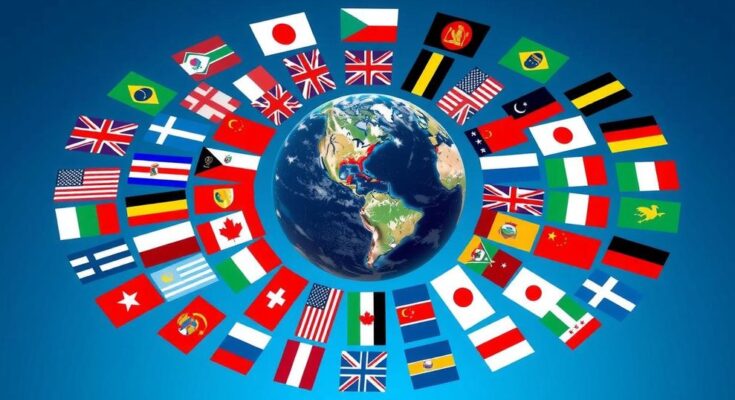This editorial emphasizes the need for China to align its foreign policy with its status as a global power, highlighting discrepancies between its stated diplomatic principles and actual actions, particularly regarding its relationships with Russia, Japan, and military transparency. China’s assertive stance in territorial disputes raises questions about its commitment to international protocols and cooperation.
In a recent editorial, it is emphasized that China, as the world’s second-largest power, must align its diplomatic actions with its global responsibilities. This comes in light of the United States’ disregard for international rules under President Trump’s administration, which has raised pressing questions regarding China’s foreign policy direction. The editorial insists that global diplomacy should operate without double standards and calls for respect for international regulations.
Chinese Foreign Minister Wang Yi articulated the principles of Chinese diplomacy at a National People’s Congress news conference on March 11, reaffirming China’s commitment as a permanent member of the U.N. Security Council. Nonetheless, there is a clear discrepancy between these principles and China’s diplomatic conduct, particularly concerning the Ukraine conflict, where China has failed to facilitate meaningful dialogue and has instead supported Russia economically.
Furthermore, China’s conduct in territorial disputes, particularly with the Philippines and Japan, reflects a consistent assertiveness. Beijing has increased military presence in contested areas, while its response to Japan’s seafood import restrictions has been notably inadequate, as highlighted by Wang’s vague remarks on the issue.
In addition, China’s defense budget has risen significantly, raising international alarm due to a lack of financial transparency. It is reported that China is advancing its nuclear capabilities and plans to commission a third aircraft carrier, raising concerns over its military objectives.
To be perceived as a responsible global power, China must reconcile its diplomatic rhetoric with actions that reflect a commitment to international cooperation and peace.
The editorial stresses that China’s ambition to be recognized as a leading global power necessitates a genuine commitment to aligning its diplomatic rhetoric with substantive actions that promote global stability and respect for international norms. Addressing contradictions in its foreign policy and demonstrating transparency in military expenditure are essential for building trust with other nations.
Original Source: www.asahi.com




